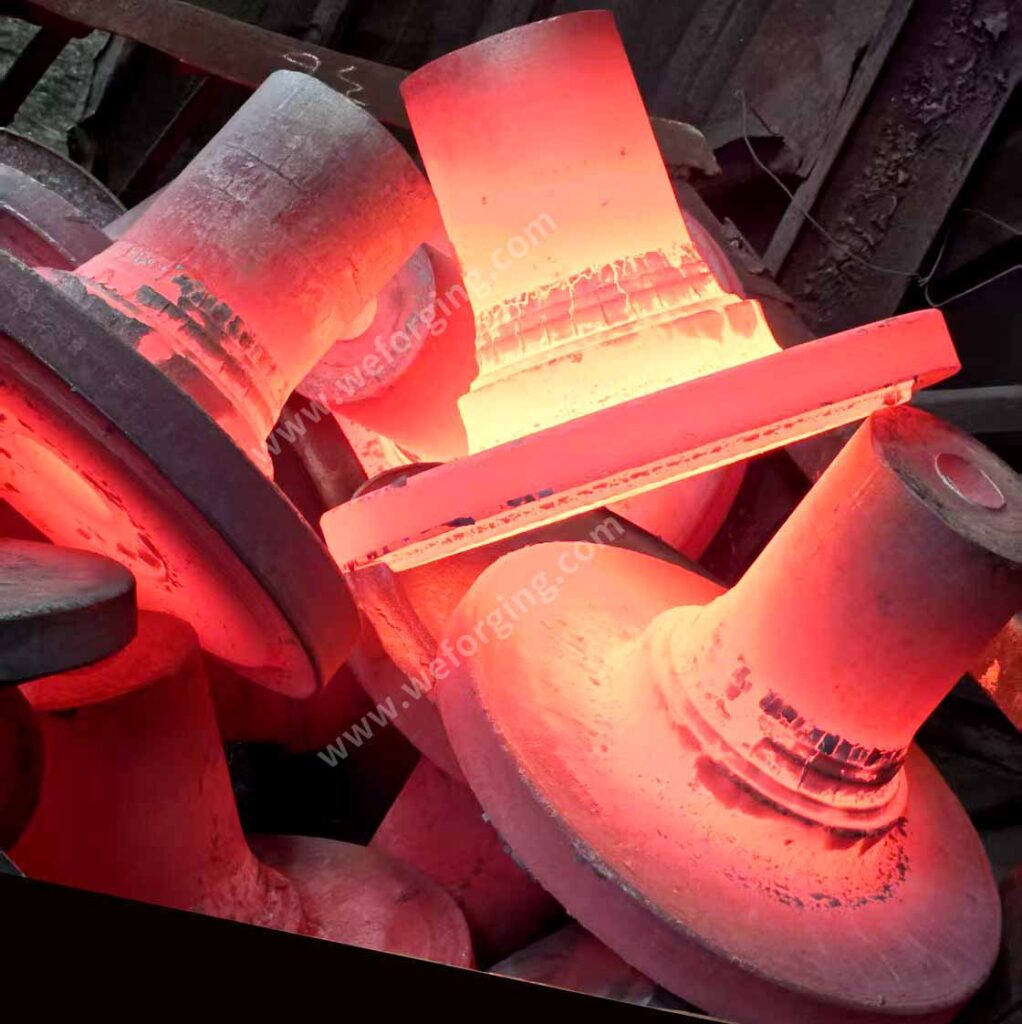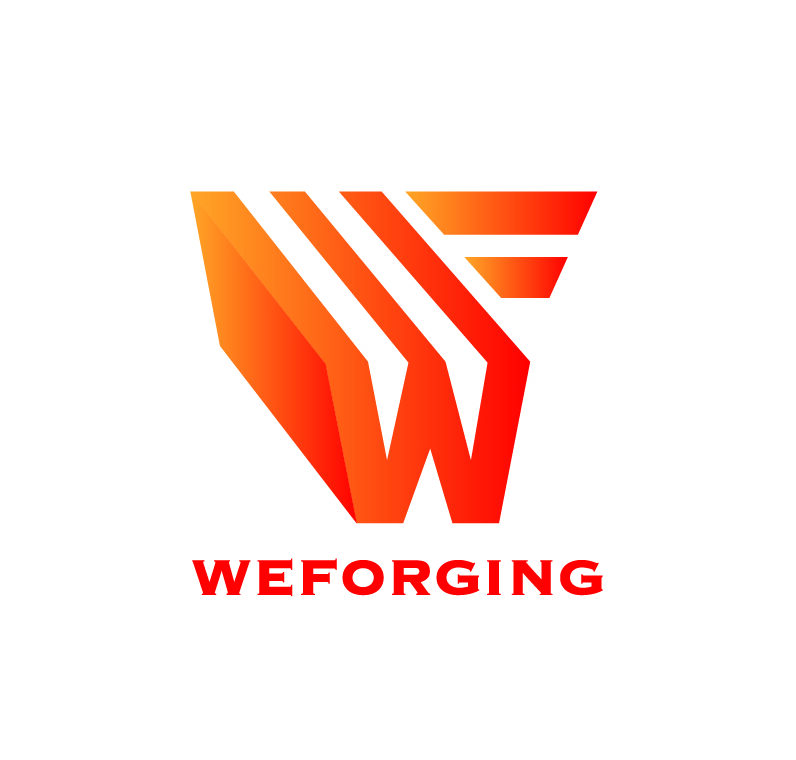What are CNC and NC?
In-depth research on the precision manufacturing and high-quality forging solutions in the forging industry, combined with precise CNC processing, promotes the continuous upgrading of modern industry. These comprehensive capabilities enable us to meet the increasingly complex demands of modern manufacturing. But what exactly is CNC? In this comprehensive guide, we explore the history, technology, applications and advantages of CNC, especially the significance and background of why it is necessary to discuss CNC in the context of the forging industry.

What are CNC and NC?
CNC (Computer Numerical Control) and NC (Numerical Control) are both forms of advanced technology that integrate computers with processing tools to automate manufacturing processes. These systems are essential in modern precision manufacturing for parts that demand strict tolerances and high repeatability.
How CNC Machines Work:
CNC machines read and parse digital files to precisely control various factors like speed, cutting volume, tool movement, and spindle rotation.
Automation allows CNC equipment to operate continuously and autonomously, significantly reducing human intervention. This ensures superior consistency, stability, and precision across batch productions.
Unlike manual machining, CNC tools require minimal human input once programmed, reducing the likelihood of human error and guaranteeing repeatable, high-quality results with tight tolerances.
Why CNC Machines Are Essential:
Increased Accuracy: CNC machine tools are designed to work with incredibly precise tolerances, ensuring that every part meets stringent quality standards.
Efficiency: CNC automation improves production speed while maintaining quality, making it ideal for high-volume manufacturing.
Consistency: CNC systems offer unmatched consistency in batch production, making them indispensable for industries that rely on high precision and uniformity.
The Development of Numerical Control Technology in Manufacturing Industry
The concept of CNC can be traced back to the 1940s, when early numerical control (NC) machine tools were developed. These machines were originally controlled by perforated paper tapes. In the 1970s, the development of microprocessors led to the birth of modern CNC machine tools. Today, CNC technology encompasses the integration of CAD/CAM software, human-machine dialogue, real-time monitoring, and the automation of linked production across multiple axes and multiple devices.
Integrating CNC into the forging workflow adds incredible value. Forged components have inherent strength and yield toughness due to the alignment of their grain structure, and when paired with CNC machining, they meet precise geometric and surface finish requirements. For instance, our CNC milling processing technology enables us to process complex features into forged blanks with minimal material waste.
Comparison between Numerical Control and Traditional Processing
In traditional mechanical processing, the operator manually relies on experience to perform various operations such as swinging and rotating the equipment to achieve the cutting of the workpiece. In contrast, CNC machining uses programming instructions to precisely and consistently guide the tool to work in coordination with the spindle and tool rest, thereby achieving processes such as turning, milling, and drilling.
The advantages of numerical control machining over manual machining include:
- Greater accuracy, high repeat positioning precision, and high batch stability
- High repeatability, simple operation, and reduced human factors
- Faster production speed, reduced labor costs, and the ability to handle complex geometries
Our milling operation is a typical example of how CNC improves traditional methods, providing outstanding results while shortening delivery times.
Key Types of Numerical Control Machining
- CNC Milling: Also known as machining center equipment, CNC milling involves using a rotating multi-point cutting tool to remove material from a workpiece. This process is ideal for producing complex shapes and with strict tolerances. We offer 5-axis CNC milling services for forgings and raw materials.
- CNC Turning: In CNC turning, the workpiece can rotate while the tool remains stationary, or the workpiece can remain stationary while the tool rotates. This process is typically used for cylindrical parts, such as shafts and bushings.
- CNC drilling: CNC drilling offers accurate and efficient hole-making capabilities. It is often used in combination with milling and turning for the production of multi-functional parts.
- CNC Grinding: The precision processing by grinding machines enhances the flatness, surface finish and dimensional accuracy of parts. When the workpiece components need to rotate at high speeds, it becomes particularly important. In applications, the high precision of bearing positions and bearings is a common application scenario, and this process is indispensable.
- CNC Gear hobbing and Shaping: Gears are crucial in the transmission of various machinery. The precision and strength (forging) of gears determine their lifespan and the noise of the equipment. The precision of gears requires high-precision gear grinding machines and grinding wheels.
The manufacturing technology of each process directly affects the reliable performance of the product, so CNC equipment plays a crucial role in the manufacturing field.
CNC in the Forging Industry
Forging delivers strength, CNC machining delivers precision. By integrating forging and CNC technology, we provide metal components that meet both structural integrity and dimensional accuracy for demanding applications.
Precision CNC Machining + Forging Expertise
Our CNC machining services are designed to complement our in-house forging capabilities. We specialize in:
- Precision machining of complex post-forging features
- Large-scale production with tight tolerances
- Part serialization and full customization
Industries We Serve
- Agriculture & Forestry Equipment
Manufacturing mechanical components such as swing discs, flanges, and structural parts. - Oil & Gas Industry
Precision-machined valve bodies, pump components, and flow control systems, forged for durability. - Medical Sector
High-strength, corrosion-resistant stainless steel forged parts for medical equipment. - Construction Machinery
Production of gearbox gears, shafts, transmission parts, and heavy-duty mechanical components. - Gearbox Applications
We manufacture gear shafts, shaft gears, gear rings, flanges, and anti-loosening fasteners with high mechanical performance. - Hydraulic Cylinder Components
Full range including rod heads, forged lifting rings, piston rods, cylinder bottoms, heads, barrels, flanges, and nylon nuts.
Custom CNC Milling for Forged Parts
We offer tailor-made CNC milling services for metal materials to meet industry-specific requirements. Our online platform allows clients to efficiently configure and order custom-forged and CNC-machined parts.
Materials & Surface Treatments
We work with a wide range of materials including:
Carbon steel, gear steel, alloy steel, stainless steel, and aluminum alloys—all suitable for industries requiring high strength and corrosion resistance.
Surface treatments are available for both forged and machined parts, enhancing their durability and performance.
Advantages of CNC Machining in Weforging
Customized solutions: from prototype design to forging to CNC, one chain traceability, quality control, laboratory enhanced, flaw detection equipment.
Three-coordinate precise measurement: Under a certain temperature control, ensure the consistency of measurement standards
Quick response: Our mission is to solve customers’ problems and provide them with technical and manufacturing solutions
End-to-end service: from forgings to finished products
We are committed to providing high-quality and reliable components to help our customers stand out in their markets. If you have any technical questions about CNC and other processes, you can consult our technical team:
Email:wf-kevin@outlook.com


